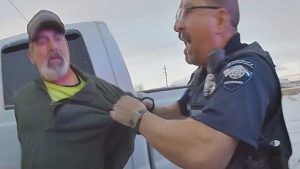by Shane Clouse
With the holidays upon us, some will be dealing with the death of a loved one. I don’t think a clinical list is what is needed, but talking with someone who has been there or is still there can help. My own journey started last March when my father died. My grief is a pain I would not wish on any of my family or friends.
Grief is so powerful that sometimes people look for ways to go around rather than face the experience. That never works. Individuals will go through the grieving process in their own way without a set timeline or certain stages to “be all better.”
There are no set stages, but in 1969, Dr. Elisabeth Kubler Ross documented different stages of grief. In dealing with your own loss, you may go through some or all of these emotions.
First we have numbness, a stage which includes physical shock and denial of the events and can last several weeks. Personally, I had to consciously make the decision to feel so I could be a part of the world again.
Second, we have pain, a stage which will include actual physical pain as well as guilt and sadness. Again, there is no set length of time for feeling these emotions, and they can come back to you even after you think that you are through the process.
Next up is bargaining, a stage where you might find yourself asking God to put things back the way they were. Or you may just want to “cut a deal” with the universe.
When bargaining doesn’t work, rage and anger might set in. You could be angry at anybody: doctors, family, yourself, God, or even the deceased. This stage can be especially tough because you are dealing with the frustration of never seeing your loved one again.
Anger is usually followed by depression, a stage when you could experience listlessness or exhaustion combined with feelings of helplessness, guilt, and a lack of interest in life. When I turned 18, my father gave me a shotgun that was his first gun. He had it all re-worked and on the stock he engraved, “Life is for those of the living.” As tough as it is, those are good words to live by.
Included in depression, but a stage of its own is anxiety, a stage involving fear of losing others close to you or even of your own death. Two months after my dad passed away, his longtime friend, a man I considered as an uncle, passed away as well. It was the end of an era. So it can happen, and the only thing you can do is to let those you love know of your love.
Last, but not least is acceptance. Now acceptance doesn’t mean being able to forget. What it means is being able to remember those that you’ve lost and and still move on with your life.
It doesn’t matter how we go through these stages or how long we spend on each stage, but we all need to reach the last stage of acceptance. Without acceptance, time would be standing still while the rest of the world was moving on.
Although we each will go through the process of grieving on our own, that doesn’t mean we can’t talk with and listen to others. Family and friends are the best bet, but there are group meetings out there that can help. These meetings are totally confidential and you can share or just listen. My stepmother noticed that I wasn’t sleeping and coerced me into joining her for a meeting.
As I listened to other people describe what they went through, I knew that I wasn’t alone. I met people who had been through every phase.
In these meetings, you learn what you can expect to deal with as time goes by. I learned that grief will take longer to resolve than most people think it should. Almost everybody has been told, “You need to just get over it and move on.” Easily said, not easily done.
These groups like to be called grief sharers. Here is a description of how they work:
“Grief sharers always look for an opportunity to actively care. You can never ‘fix’ an individual’s grief, but you can wash the sink full of dishes, listen to him or her talk, take his or her kids to the park. You can never ‘fix’ an individual’s grief, but you can visit the cemetery with him or her.
“Grief sharing is not about fixing — it’s about showing up. Coming alongside. Being interruptible. ‘Hanging out’ with the bereaved. In the words of World War II veterans, ‘present and reporting for duty.’ “The grief path is not a brief path. It’s a marathon, not a sprint.”
There are two group settings that can help: one in Colorado City, on the 1st and 3rd Thursdays at 9 am and one at the La Veta Community Center on the 2nd and 4th Fridays at 12:30 pm. For more information, you may call Sarah Harding at 742-5423.
Grief is about those you love.
You cannot live if you cannot die, and you cannot love if you cannot cry.

Breaking news: Results of Walsenburg Mayor race and recall election
Gary M. Vezzani was elected Walsenburg’s mayor in Tuesday’s special mayoral election/recall vote. Preliminary results announced Tuesday night show that both Nick Vigil in Ward



